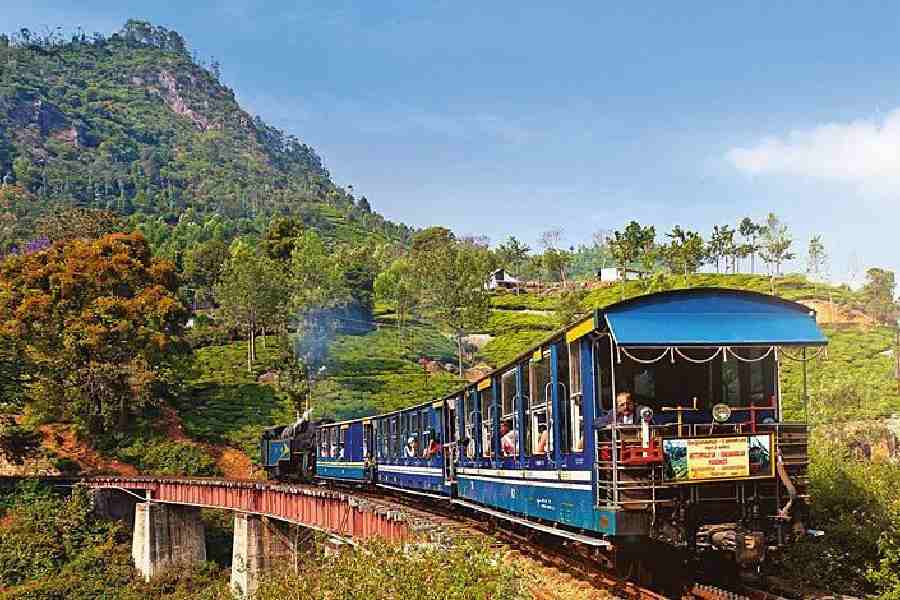
New Delhi, Dec. 1: Volkswagen AG today announced the recall of 3.23 lakh diesel cars in India after an investigation ordered by the government revealed that the German carmaker had tacked a "defeat device" on to the engines to cheat on fuel emission tests.
This is the biggest recall in India, topping Honda Car India's replacement of faulty airbag inflators in 2.23 lakh vehicles two years ago.
The automaker announced "a voluntary recall" to update all cars fitted with the EA189 engines in India - the same engine that has been at the centre of the emission scandal that erupted in the US in September.
The recall will cover all three badges of the automaker: Volkswagen, Audi and Skoda.
It will cover around 198,500 Volkswagen models such as the Polo, Vento, Jetta, and Passat; 88,700 Skoda cars; and 36,500 Audi vehicles, including the A3 and A4 sedans that were sold between 2008 and the end of November this year.
The recall will require VW to fix, free of cost, the software device fitted on to 1.2-litre, 1.5-litre, 1.6-litre and 2-litre versions of the EA189 engine.
The decision was taken after a meeting today between Volkswagen executives and officials of the ministry of heavy industries to discuss the test results presented in a report submitted by Automotive Research Association of India (ARAI), an independent automotive testing agency.
Volkswagen's reputation has been tarnished after it was forced to recall 11 million diesel vehicles worldwide because of its blatant attempts to cheat on smog-causing nitrogen oxide emissions with the deceptive software.
In the US, it was found that emission levels of VW diesel cars were 40 times higher than permissible. VW has already set aside 6.5 billion euros ($7.3 billion) to cover the cost of the recalls and other efforts to win back customers' trust. It faces a fine of up to $18 billion in the US alone. Analysts have already estimated that cost of fines, lawsuits and vehicle refits worldwide could top 40 billion euros ($42 billion).
A ministry of heavy industries official said no penalty was being imposed on VW as of now. "They may be asked to pay monetary compensation. A decision will be taken later."
There was no mention of when the recalls will actually start in India. "If everything goes as planned, we can start the worldwide recall in January," Volkswagen CEO Matthias Mueller had said recently. "All the cars should be in order by the end of 2016."
The big surprise is that the VW cars appear to have failed nitrogen oxide emission tests in India where the standards are three times lower than those in Europe. (See chart)

India has enforced Bharat Stage IV (BS-IV) emission standards since April 2010 in 13 cities, including the national capital region, Mumbai and Calcutta. The rest of the country is covered by BS-III and will move up to the higher standard in April 2017.
BS-IV compares with an emission standard in Europe that came into force in January 2005 and prevailed till September 2009. Since then, Europe has tightened its emission standards three times.
An ARAI official said the tests revealed that some of the affected cars were emitting up to three times more nitrogen oxide compared with levels attained during model approval tests. The testing agency had submitted its preliminary report to the Centre on October 28.
"It is widely accepted that cars will emit more in real-world conditions than in a lab. The government has determined this higher emission is tantamount to a gross violation of the BS-IV standards in India," the official added.
The automaker will now present the technical solution it plans to introduce in the cars to the ministry of heavy industries and ARAI.
"Once approved by the competent authorities, the respective brands of the Volkswagen Group in India will carry out the necessary actions in a step-wise manner. The existing installed software does not affect the handling, technical safety or road worthiness of the cars," the company said.
A company official said the solution for most of the engines affected by the diesel emissions scandal is the same as the one used in Europe.
In Europe, Volkswagen plans to offer a software update to fix 2-litre engines. In the case of the mid-sized 1.6-litre (and the downsized 1.5-litre units built for India), the replacement will involve a software update and a hardware change. The plan is to put a small plastic filter inside the engine's air intake.
Volkswagen estimates that updating the software will take around half an hour. If the hardware also has to be changed, then it could take up to an hour. The company is still working on a solution for the 1.2-litre engine. The carmaker claims neither solution will impact engine performance or fuel economy. However, Indian officials have not verified these claims.
Vehicle recalls in India have crossed a million units. Besides Honda, the other big recalls include Ford's 1.66 lakh units of Figo and Fiesta Classic models in September 2013 and General Motors' recall of 1.55 lakh units of Beat, Spark and Enjoy models in July 2015.
For Volkswagen, the controversy has already impacted its Indian market. After seven sequential months of growth, the company saw its sales decline 21 per cent in September and 30 per cent in October, when most carmakers reported robust festive-season sales.










